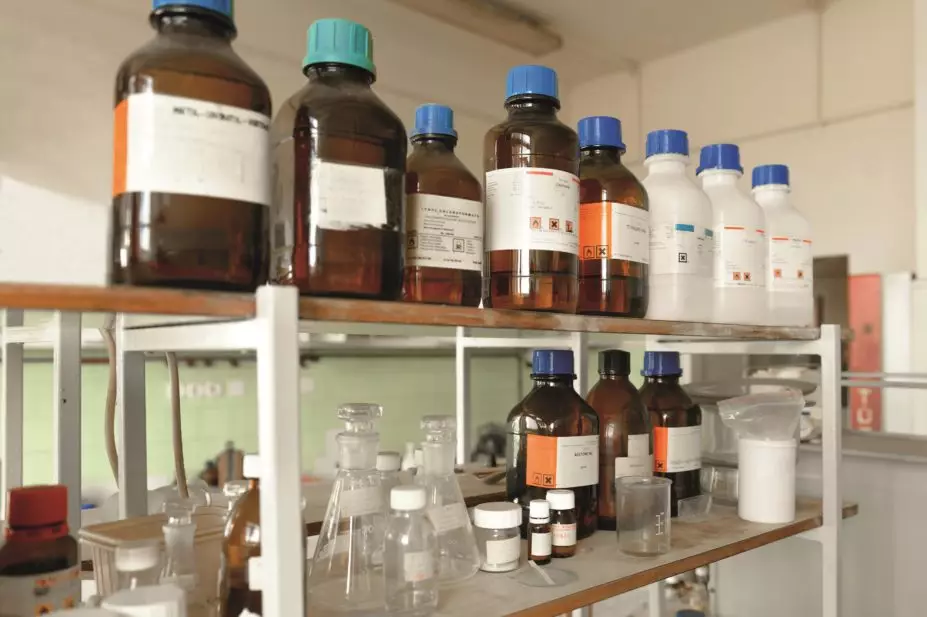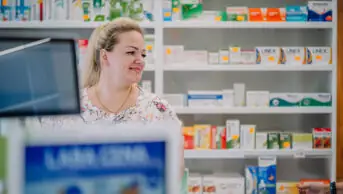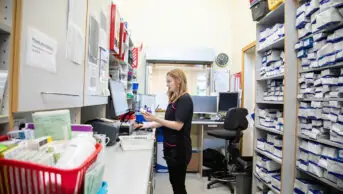
istockphoto.com
In this article you will learn:
- How the law around the sale of regulated and reportable substances (including poisons) has changed;
- The responsibilities and legal requirements for the compliance with the sale and supply of regulated and reportable substances;
- How to report suspicious transcations and thefts of regulated and reportable substances.
The De
regulation Act
[1]
is the result of a UK Government initiative to cut bureaucracy in business and retail[2]
, including that associated with the sale of poisons. The provisions affecting poisons came into effect on 26 May 2015, and have resulted in substantial changes to the Poisons Act 1972[3]
.
Changes to poison
s legislation brought into effect by the Deregulation Act include the abolition of the Poisons Board, the statutory body whose function was to advise the Home Secretary on matters relating to poisons, and the removal of the poisons list and almost all of the poisons schedules
[1]
.
Listed sellers, part 1 and part 2 poisons, householder certificates and many of the other provisions formerly associated with poisons are no longer applicable, and a new, less complicated system of control applying to poisons and explosives precursors is now in place.
This article looks at the main changes to the Poisons Act and how it will affect pharmacy practice in the UK.
Regulated and reportable substances
Schedule 1A of the newly amended Poisons Act lists substances controlled under the new legislation. It consists of four parts, defining four types of substances (see ‘Examples of regulated and reportable substances’):
- Part 1: regulated explosive precursors
- Part 2: regulated poisons
- Part 3: reportable explosive precursors
- Part 4: reportable poisons
Human and veterinary medicinal products are excluded from these definitions.
| Examples of regulated and reportable substances | |||
|---|---|---|---|
| Adapted from: Royal Pharmaceutical Society guide to changes to the Poisons Act 1972 [4] . | |||
Part 1: regulated explosives precursors | Part 2: regulated poisons | Part 3: reportable explosive precursors | Part 4: reportable poisons |
Hydrogen peroxide (>12% w/w) Nitromethane over (>30% w/w) Nitric acid Sodium chlorate (>40% w/w) Potassium chlorate (>40% w/w) Sodium perchlorate (>40% w/w) Potassium perchlorate | Hydrogen cyanide Lead acetates Oxalic acid (>10% w/w) Barium salts (except barium sulphate and those listed in Part 4)
| Ammonium nitrate (>16% by weight of nitrogen) Acetone Hexamine Sulphuric acid Potassium nitrate Sodium nitrate Calcium nitrate Calcium ammonium nitrate | Ammonia Formaldehyde (>5% w/w) Hydrochloric acid Paraquat, phenols Potassium hydroxide Sodium hydroxide |
Supply of regulated and reportable substances
It is an offence, incurring a penalty of up to two years’ imprisonment or a fine, to supply a regulated substance (i.e. a regulated explosives precursor or regulated poison) to a member of the general public without first verifying that they have a valid Home Office or non-Great Britain licence to acquire that substance. To confirm validity, the seller should inspect the licence, checking that it is unaltered and in date, and the form of identification specified in the licence should be examined[1]
. Since the photographic identification of the purchaser must be examined, and must match the licence, the sale can only be made to the person named.
The seller must check the substance requested and quantity match the licence, and enter details of the sale on to the licence. A warning label, which states ‘Acquisition, possession or use by the general public is restricted’[5]
, must be affixed to the packaging of the regulated substance before it is supplied to a member of the general public.
In addition to the above, a regulated poison may only be supplied to a member of the general public from a registered pharmacy by or under the supervision of a pharmacist. As well as entering the details of the sale on to the licence, the seller must also keep records of the sale stating:
- The date of the supply;
- The name and address of the purchaser;
- The name and quantity of the regulated poison supplied;
- The stated purpose of the purchase.
The purchaser must sign this record[1]
.
Reportable poisons and explosives prescursors do not require the purchaser to hold a Home Office licence. They can be supplied if the request is not suspicious and after considering whether more appropriate commercial alternatives and sellers are available[1],[4]
.
Reporting suspicions
If a pharmacist has reasonable grounds for believing that a transaction or potential transaction is suspicious (e.g. for use manufacturing explosives or to cause injury or harm), then this must be reported to the Metropolitan Police’s anti-terrorist hotline (0800 789321) or by email (chemical.reporting@met.police.uk).
This rule applies to all supplies or proposed supplies, whether they are the substance’s user or supplier, and whether it is being requested for business or private use.
Reasonable grounds for suspicion include circumstances where the prospective customer:
- has previously been refused a request to purchase a regulated or reportable product;
- has presented a stolen licence, or has altered the licence in some way;
- is not familiar with the regular use of the product, nor with the handling instructions;
- refuses alternative products or products with a lower (but for the proposed use sufficient) concentration;
- insists on paying cash, especially large amounts;
- requests packaging or delivery methods that deviate from what would be ordinary, advised, or expected[5]
.
The Home Office have produced a template for recording information about suspicious transactions
[5]
and have also produced useful guidance about identifying such transactions
[6]
.
Theft or disappearance
of regulated and reportable substances must be reported to the police by calling the non-emergency number (101).
Karen Pitchford is principal lecturer in pharmacy law and practice at Leicester School of Pharmacy, De Montfort University.
References
[1] The Deregulation Act, 2015.
[2] HM Government. Red Tape Challenge: RETAIL 2015. Available from: https://www.redtapechallenge.cabinetoffice.gov.uk/themehome/retailchallenge/ (accessed July 2015).
[3] The Poisons Act, 1972.
[4] Royal Pharmaceutical Society guide to Changes to the Poisons Act 1972. Available at: http://www.rpharms.com/support-resources-a-z/poisons-and-chemicals-from-pharmacy.asp (accessed July 2015).
[5] The Home Office. Guidance for Pharmacies selling non-medicinal poisons to the general public (2015). Available at: https://www.gov.uk/government/uploads/system/uploads/attachment_data/file/428783/Guidance_for_Pharmacies_FINAL_TEMPLATE.pdf (accessed July 2015).
[6] The Home Office. Supplying explosives precursors and poisons (2015). Available at: https://www.gov.uk/government/publications/supplying-explosives-precursors/supplying-explosives-precursors-and-poison (accessed July 2015).


